Have I told you how much I love Lisbon? Since my man doesn’t want to move there, I’ve found a work around. If you can’t move, teach!
I also love the Longevity Leadership programme I co-founded there with Céline Abecassis-Moedas. She is Pro-Rector for Innovation at Catolica Lisbon School of Business and Economics. Through our partnership (and friendship) we’ve created the world’s first executive programme dedicated to longevity and leaders.
I’m just back from the inspiring and energising 2nd edition, with 50% more participants, and tons of buzz and positive feedback. Everyone was super enthused - participants, alumni speakers and faculty, including Nic Palmarini, the Director of the UK National Innovation Center on Ageing, Lisa Edgar, CEO of The Big Window and Michael Clinton, CEO of Roar Forward.

Executives from all kinds of sectors (Insurance, retail, transportation) came to get a deep dive on how longevity would impact their businesses, customers and employees. Rather than give you a detailed summary (see here for a last year’s), here are a few key highlights via the key messages that count.
One of the joys of the programme is that it brings together some of the best longevity thought leaders I’ve encountered to contribute to pushing the topic forward faster. With every year, the urgency behind the data grows. Luckily, so do the number of first-movers starting to get on board.
The Challenge
One of our key economic longevity challenges is to keep people in work. And not just past today’s official retirement age. But much earlier. Huge numbers of people stop working much earlier - for a variety of reasons. Either because companies kick them out, or because they aren’t healthy or strong enough to continue, or because they are convinced that early retirement might be a good thing.
The graph below shows the percentage of people in each country retire in their 50s and 60s. (You can read more in Lisa Berkman’s excellent book Overtime). If you don’t work in your 50s, the likelihood of working in your 60s drops dramatically. The first challenge is to ensure that people can stay in work until retirement age. The second is to extend that age.
Why Care?
Because if we do nothing, and let the 2nd billion group of people who will age past 60 by 2050 (that probably includes you if you aren’t there yet) age the way the 1st billion did, our economies will shrink quite dramatically. Not a recipe for social peace. The graph below are the predictions of the drop in economic growth (pink line) based on status quo assumptions. If there was no population ageing, we’d be the dark blue line. If we do nothing, we’ll drop to the pink line. The opportunity ahead is to mitigate and accompany ageing societies so that they are healthy, engaged and contributing - that’s the middle line.
A typically brilliant presentation by Nic Palmarini mesmerised the group, as it always done. Nic is so far ahead of almost anyone else on thinking and acting on practical solutions for ageing that listening to him feels a bit like tapping into a more optimistic vision of a possible future. It will take what he calls AI: ageing intelligence. Check out the National Innovation Centre on Ageing (NICA) for more.
NICA will start measuring the countries and companies that are most successfully adapting to our ageing futures with the new Longevity Index they have just launched. I’ll write about that more in the coming months.
Getting Granular About Age
One of the tasks for longevity leaders is to start researching and understanding the life course, especially its second half, in more detailed and granular ways. Not just so that we can ensure that they stay healthy, happy and productive as employees and humans, but also so that we can develop products and services that respond to emerging needs and longer lives.
Noone is better at this than Lisa Edgar, CEO of The Big Window. She’s been studying Q3 and Q4ers for decades. And generously shared the result of her recent research, done for Canada Life. A big part of her work is looking at the decades past 50 as distinct phases with shifting motivations, interests and consumer-buying habits.
I loved the graph below that shows that age 52 is the bottom year of life, at the bottom of the famous U-curve of happiness. If you are anywhere near that age, you may have a sense of what Lisa calls ‘the perfect storm’ (or what my friend Eleanor Mills less politely calls the ‘midlife clusterfuck’ - and my daughter actually offered me a wine called Clusterflock! It’s delicious btw).
In Lisa’s research, the bottom is hit by the peak sense of a loss of control. When too many big things hit at the same time, most of which you have no control over whatsover. Think death, divorce, loss, redundancy, children leaving, parents ageing, etc.
The good news, of course, is that it goes up after that, and life gets better. Something all us Q3ers discover with a sense of mixed marvelling and disbelief. God bless Q3! It’s such a welcome relief after some of the hard going of Q2. And I think it helps the Q2ers to know it, and the Q3ers to celebrate it…
Getting Brands On Board
So then we need to get the brands on board and reflecting these realities. Companies will be huge change agents in massifying and normalising the message. Speaking to Q3ers not as though they are one foot in a wheelchair and in the other in the grave. But in the prime of life, love and the pursuit of purpose and paying it forward.
That’s what this programme aims to get its participants to understand and then bring back to their companies and strategies. So it was a joy to welcome back a graduate from last year’s programme, Mafalda Honorio, who is Head of Longevity at Fidelidade insurance group. She shared with us her new, award winning ad campaign that tells a different narrative about ageing and features older folk in a more relevant way.
Make It Intentionally InterGenerational
Celine Abecassis-Moedas and Jacynth Bassett spent a day on how to reorganise the workplace to benefit from the 5 generations in the workplace. Not just by recognising that they now have multi-generational workforces, but by ensuring that their teams, strategies and services intentionally inter-generational - integrating the needs and preferences of all generations. That’s where the value lies: enhanced productivity, improved retention, better innovation.
I concluded the week with a morning devoted to the Five Steps Companies Can Do to get longevity-ready. And look forward to showcasing the alumni who put this into practice.
What About Me?
Every morning of the programme focused on a different part of the corporate challenge. Every afternoon made space for the individual. How do longer lives and careers impact us personally. We gave space for each participant to think about their own lives, careers and dreams. Shared the latest knowledge on integrating healthspan, lifespan, wealthspan and what Lisa calls ‘fullspan.’ Let’s get good at the examined life in action. Mindfully making the most of our longer lives.
And once we understand that, how does it help us to better design for our colleagues and workforces? I have found that the personal discoveries leaders make in this thinking is key to getting them to realise the impact on workforces and consumers. Each of us is a great gateway - or sample of 1 - to broader understanding.
Here’s the overview of the 5-day Longevity Leadership Programme. We’re very proud of its success and the momentum we’re building. The feedback was amazing, and we look forward to these programmes spreading to universities and business schools around the world. They too need to get longevity leadership on their agendas.
If you’re interested in joining us next year, or discussing how to get a similar initiative in your company or university, do reach out. We’re happy to spread this far and wide. Catolica Lisbon was the first-mover thanks to Céline Abecassis-Moedas’ leadership and vision. It helps that she is Pro-Rector for innovation! Now that we have done the prototyping and proof of concept, we think it’s ready to roll. Click the QR code below, or just respond to this email.
Next week, I’ll tell you about all the other things that happened this week. It was an eventful time!
And look who welcomed me home!


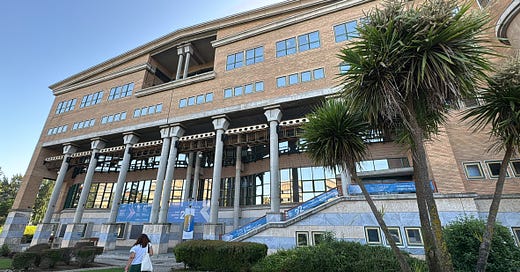




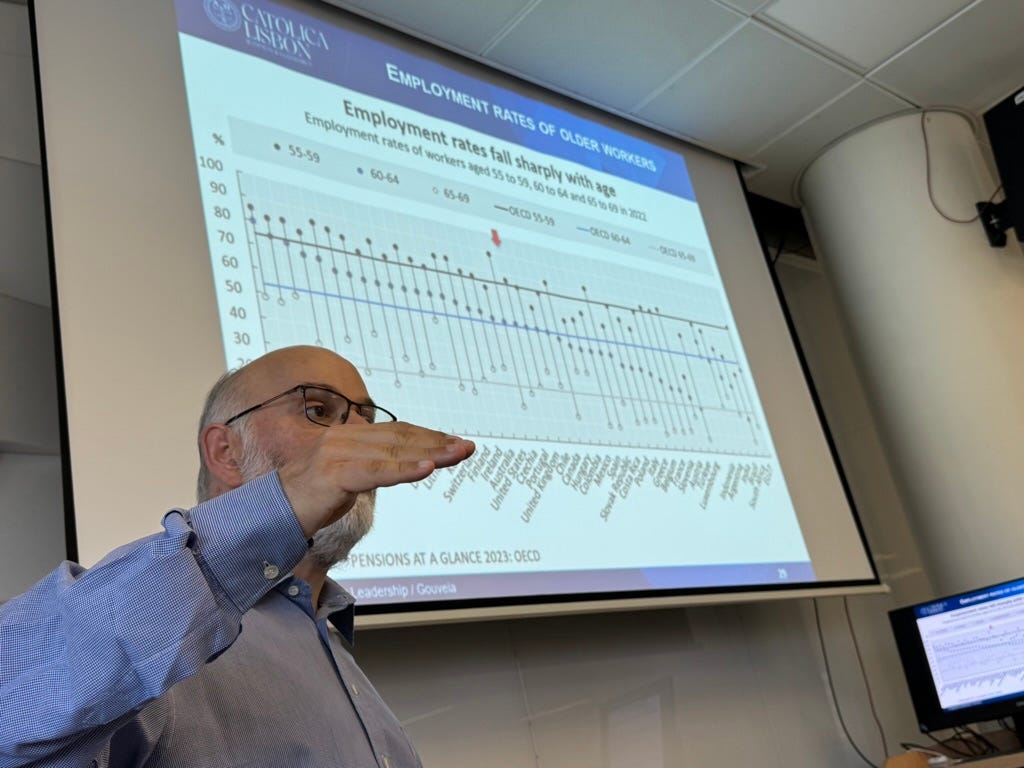

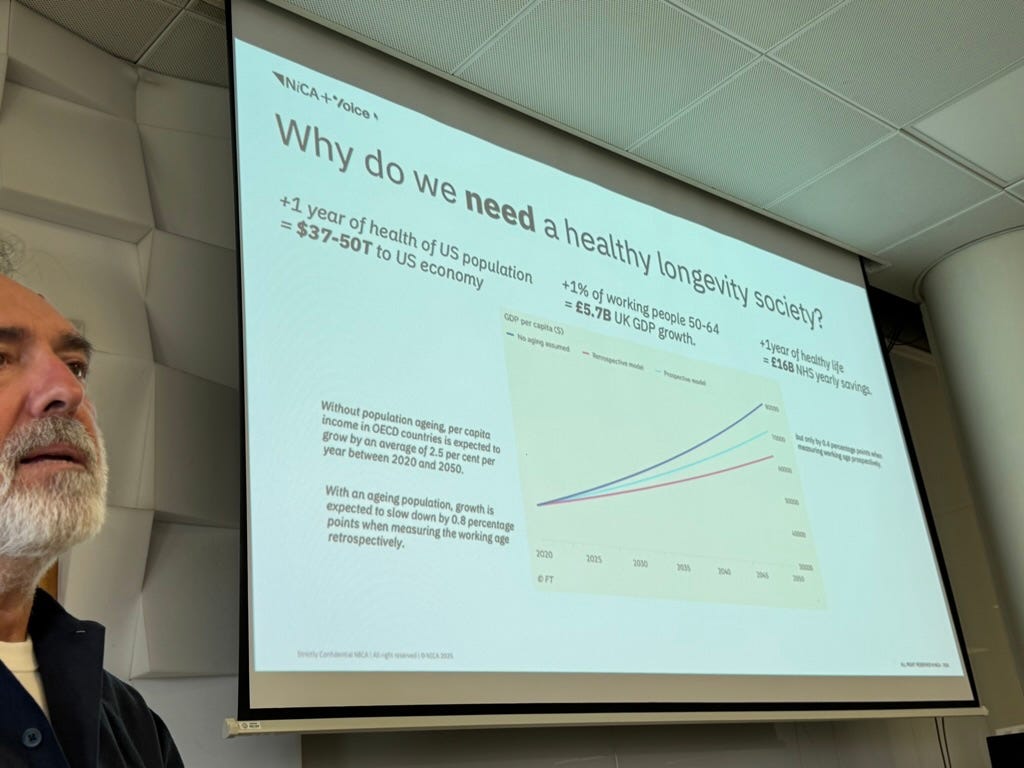



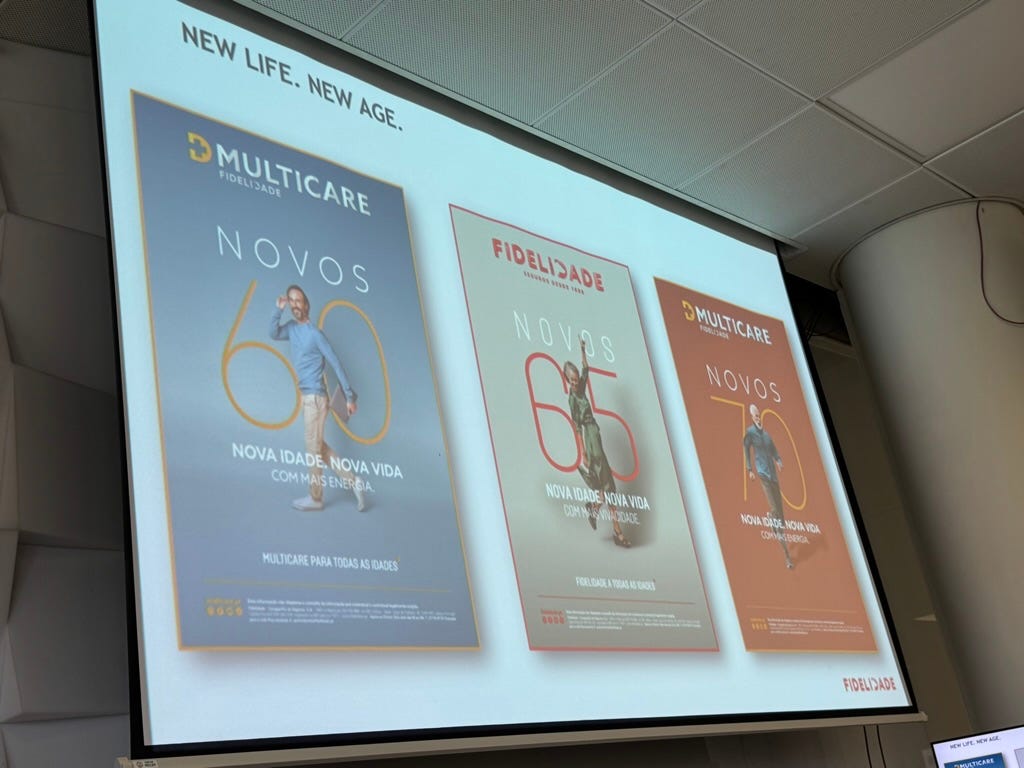




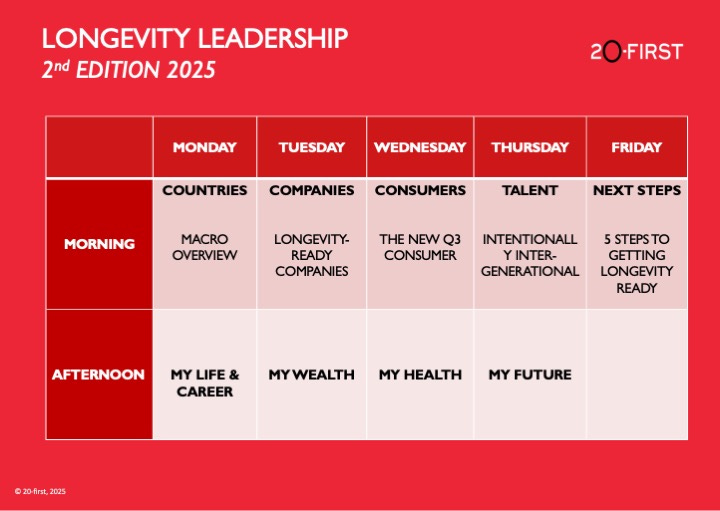

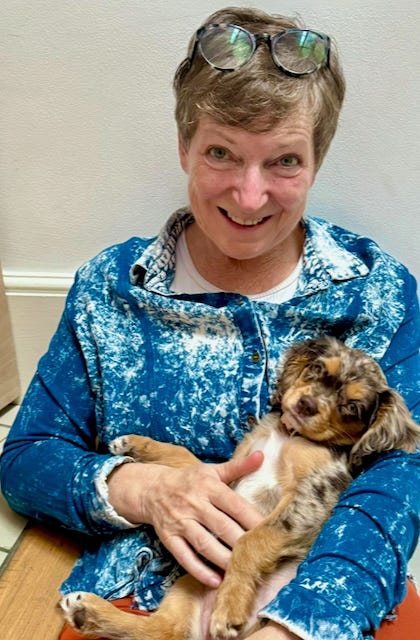

So interesting. Looking forward to learning more!